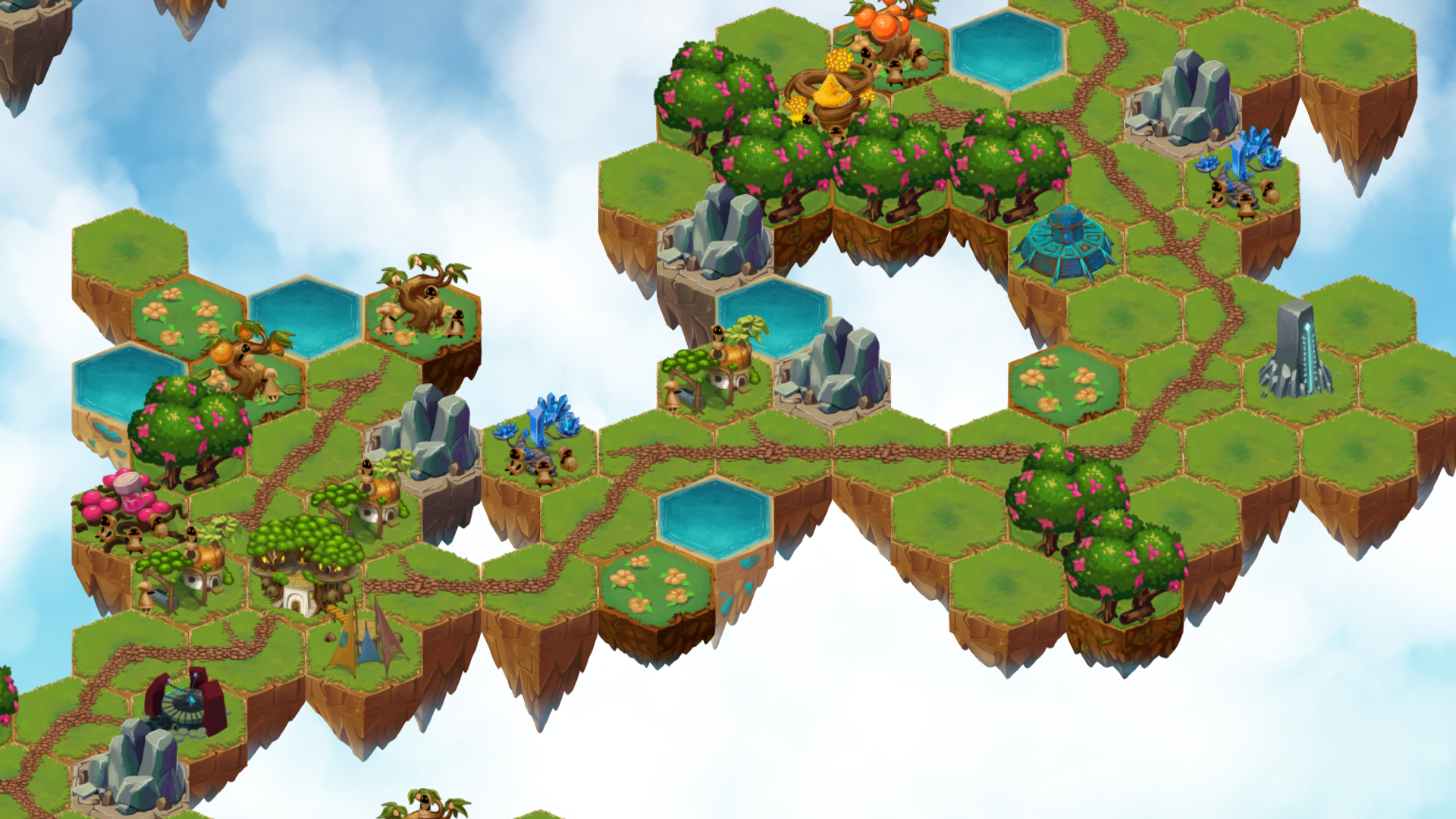Volantia is a serene strategy game about islands in the sky. It’s the second commercial title from Marc Luck, who developed Desktop Dungeons at QFC Design before striking out and forming the studio Tangled Mess Games. It’s out now on PC, but the developer is also fundraising and aiming for a console launch at a future date, hopefully on the Nintendo Switch.
Volantia is set in a lush world where humans have used technology called Zardim to lift continents into the clouds. Several generations later, civilization is beginning to collapse, so the player is tasked with building cities, managing resources, and exploring to find seven Zardim and re-activate them. Unlike the usual neon-tinged sci-fi, the main resource is plants and nature — an aesthetic that Luck describes as “greenpunk.”

Unlock premium content and VIP community perks with GB M A X!
Join now to enjoy our free and premium membership perks.
![]()

![]()